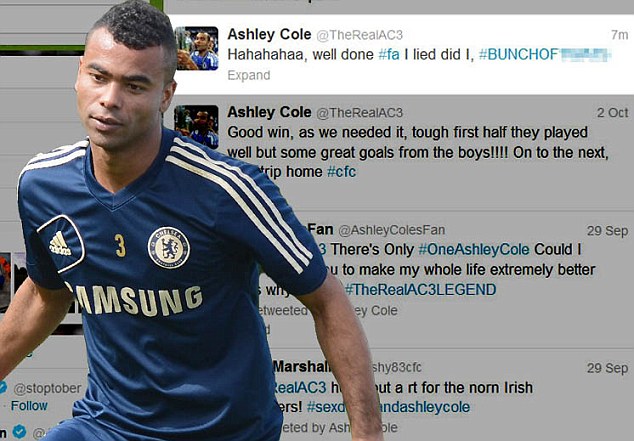Why Sports Organisations Need Social Media Guidelines
Guest Post: Steven Woodgate MA, 25, has just graduated with distinction in Public Relations in his postgraduate study at Southampton Solent University. His love for sport stemmed from his undergraduate degree in sports journalism and following Reading FC. You can follow him on @StevenWoodgate
Following the first part of this series of how sports stars can be detrimental to corporate reputation through using social media ineffectively, the second part looks at corporate communicators and how they see social media and its impact on corporate reputation.
To find deep, practical understanding of the industry, a survey specifically designed to target those who work in an aspect of corporate communications was created. Following a two-week timeframe to fill out the questionnaire, the data was collected with many interesting conclusions.
Discussions have been going on about who should manage the role of reputation management in organisations and particularly the role and specific job title of corporate communicators. As Figure 1 shows, and out of 59 recipients, the clarification of the job title within organisations remains very unclear.
Figure 1: Wordle Word Cloud for Job Titles of Corporate Communicators
Reputation management is not new and the lack of clarity over coming up with an appropriate and targeted job title will ultimately cause confusion. The two elements of the organisation and the individual clashing because of the use of social media will not become clearer with the lack of a job title.
As seen in the word cloud, the word ‘Manager’ appears to be common within the industry; however, there appears to be little that they actually ‘manage’. Reputation management, especially online, is difficult to ‘manage’ as it is hard to measure. Sports PR works in the same way. It is extremely interesting that there was no ‘Reputation Managers’ or similar job titles. Interestingly, there was no gender spilt (Male – 53%, Female 47%, n=59) for those who filled out the questionnaire, however there was a distinctive viable when it came to age. As mentioned before, the questionnaire was published online to target those who are involved actively with social media and online content, and it appears that the age group between 25-39 are those who are in charge with 61% appearing to take ownership of social media (Figure 2).
Figure 2: Age when it comes to Corporate Communications
With social media and reputation management being the key theme of this survey, many more conclusions and statistics were established. The survey was designed to broadly cover all platforms of business but the key and constant theme of this research, the individual versus the organisation, appears to be in the mindset of these corporate communicators. The results in Figure 3 proves, pretty conclusively, that some individuals’ reputations are bigger than that of the organisation’s (47.4% agree, n=59) and a social post directing from the individual will have a direct impact on reputation (98.3% agree, n=59).
Media curation may be a new concept, but with sport PR being largely involved with fan engagement, “talent” retention and marketing, it would be near impossible to analyse immediate content. Some of stakeholder theory suggesting to treat all stakeholders equally is, yet again, practically impossible to do.
Social media provides all sorts of influencers; although this is hard to define, the results from this survey indicate that corporate communicators do know that certain employees have more influence than others (96.6% agree, n=59). Therefore, it is essential that guidance and monitoring is put into place rather than leaving these employees posts anything they want and not receive the appropriate discipline.
With a good majority of corporate communicators agreeing (71.2% agree, n=59) that a strict social media policy should be put into place, corporate communicators should prioritise social media reputation management more in their workload. Sport organisations have further dilemmas as their ‘products’ to market and sale are indeed the “talent” therefore this social media reputation management need more clarity and work on. Creating the resource is not the issue, but having clear guidelines to social media, will help take some of the burden off.
Figure 3: Data Highlights from Corporate Communicators Questionnaire
Further to the result collaborated, it appears that social media is becoming a bigger area of responsibility for the PR professional. With 61% of corporate communicators taking responsibility and ownership of social media within their organisation, it appears there is still a sizable gaps from ‘ownership’ to ‘managing’ social media output.
Again, this raises the individual versus organisation debate resulting in corporate communicators not managing the social media output in line with online reputation. This may be something they cannot manage, but they can monitor it and be in a position to influence social media output by the individuals.
Figure 4: Which of these areas of PR/Communications do Corporate Communications have responsibility for?
The role of corporate communications is changing as well. As you can see from Figure 4, 52 out of the 59 believe social media is their responsibility and with no clear social policy in place, this job would become tremendously difficult. Despite social media being a big part of their role, data collected from the questionnaire about sending social media posts out with and without dialogue from senior management and research shows clear differences.
From the Figure 5, 52 of participants believe that reputation would be enhanced with mediated dialogue from senior management and corporate communicators rather than leaving it to the individual to post unsupervised. Over half also believe that is would boost employee and customer satisfaction if social media policy provided some guidance.
Figure 5: With and without dialogue, Corporate Communicators view on how social media posts will help or hinder reputation
Conclusion
This illustrated the need to implement a social media policy would be of great benefit to the organisation and its resulting impact on individuals to avoid conflict with their social media use.
To understand this further, a questionnaire was sent to sportspeople (Part 3 coming soon).
About author
You might also like
SPORTEL 2021: Day One Recap
This year’s prestigious SPORTEL convention kicked off in sunny Monaco today, welcoming a host of familiar faces as well as plenty of new ones. Doors opened at 8:30am with businesses
Six Founding Riders Set To Bring The Vision Of The UCI Track Champions League To Life
Olympic Champions, UCI World Champions and World Record holders join the new track cycling competition debuting in November 2021 The UCI Track Champions League is delighted to announce that six
Sports related spending to soar this summer as pre-pandemic life resumes
New insights from eBay Ads UK reveal the potential for brands to engage with an excited but nervous nation as sports events get back on track As pubs and indoor













